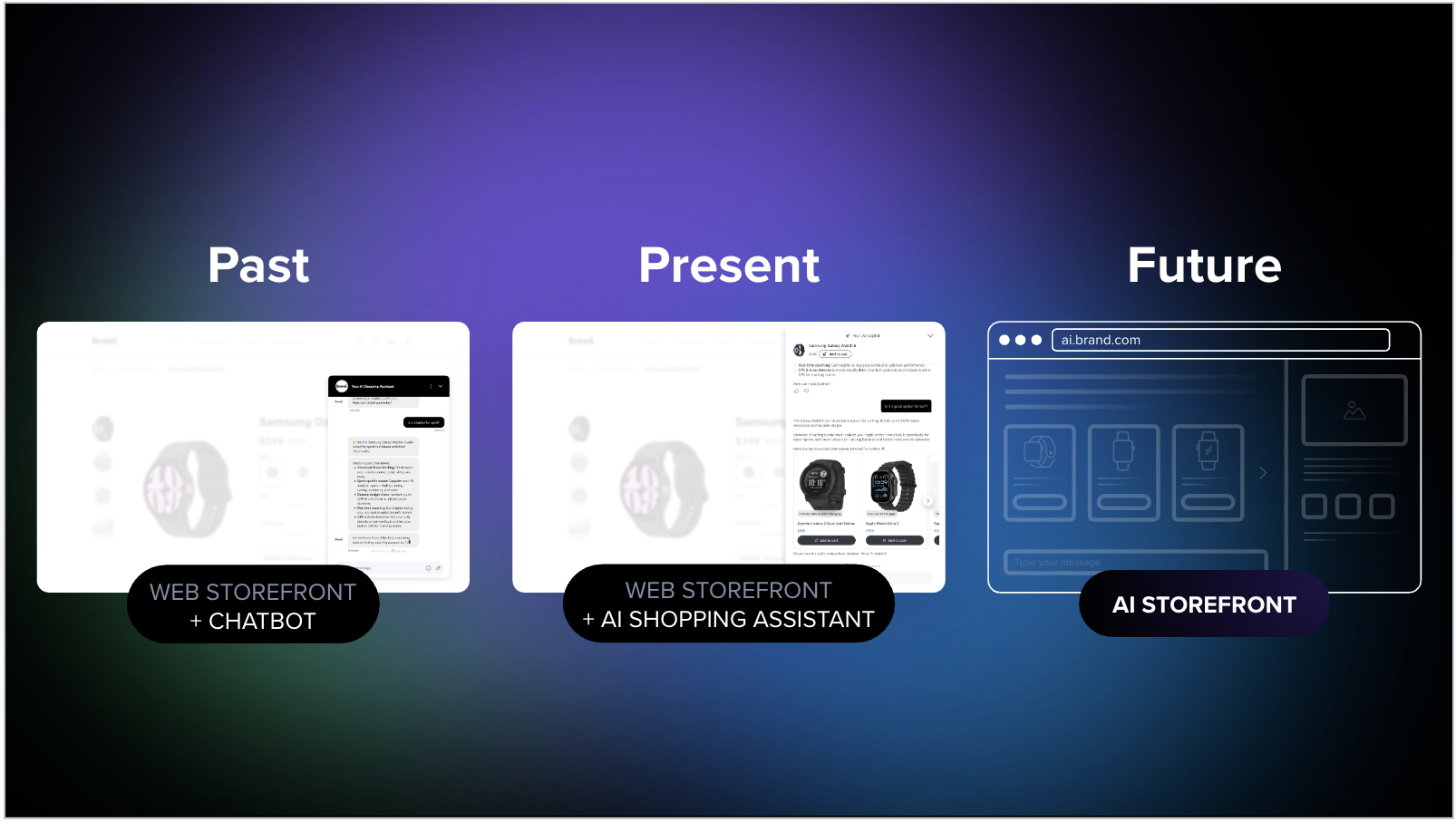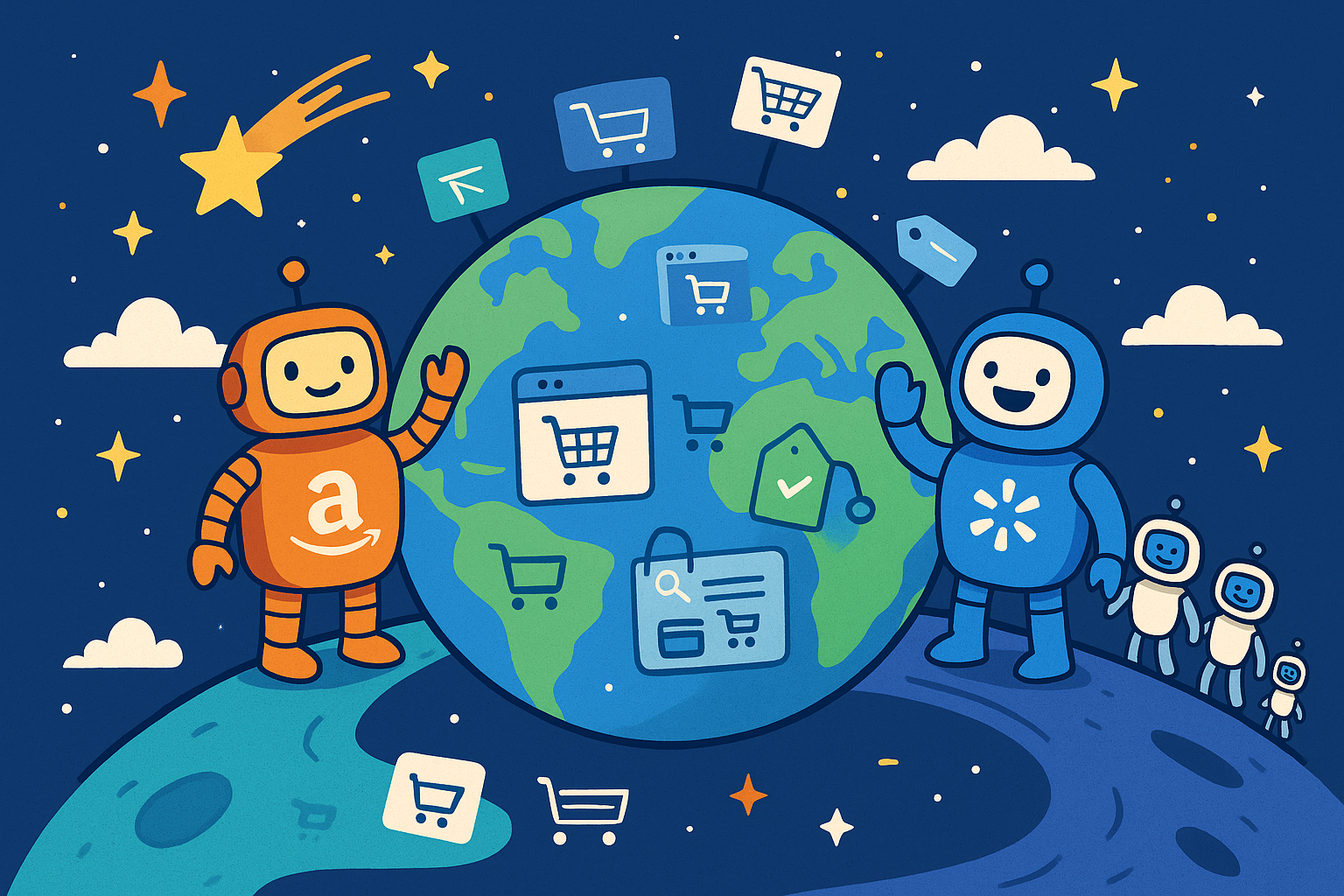How Using AI in Customer Service Benefits E-commerce Operations
iAdvize

Seasonal sales, Black Friday, Cyber Monday, the winter holidays, and other reduced-price operations lead to significant spikes in volume on e-commerce sites. This is, of course, intentional by brands as it typically results in increased conversions. However, a sharp increase in traffic and purchases also means a massive uptick in the volume of customer service requests, whether it's in the research and discovery phase, during or immediately post-purchase, or upon receipt of the product.
Generally speaking, whether you’re an established e-commerce brand affected by seasonal activity or an up-and-coming brand that consistently sees an increasing number of visitors to its digital channels, it’s very likely you’ll have to deal with periods of heavy volume. To ensure that your customer service maintains high-quality support during these periods, and also helps convert more visitors into buyers, we’re sharing our advice on how to increase productivity in the long term and be better prepared for traffic spikes.
Generative AI: Your Ally for Limitless Support
Handle an Infinite Volume of Conversations Thanks to Artificial Intelligence
To increase the productivity of your customer service function pre- and post-sale, brands can now leverage a powerful technological tool: generative artificial intelligence. The sentiment within the e-commerce market favors the adoption of AI to enhance customer service. According to a recent survey, two out of three companies have this technology on their radar this year:

AI addresses a complex but essential problem that all customer service teams face: processing queries requests on a very large scale. E-commerce companies may increase staffing on their internal teams or at their contact centers as peak times approach, but during intense periods like end-of-year sales, the volume of requests can exceed even that additional capacity.
However, the ability to address that greater volume of questions, concerns, and needs is essential to increase customer satisfaction, conversion, loyalty, and retention.
Generative AI transforms chatbots from frustrating robot facilitators into real conversational agents capable of managing a colossal number of requests simultaneously, providing immediate, accurate responses throughout the shopping journey. Using advanced algorithms and machine learning, it can anticipate frequently asked questions and provide tailored solutions in real time, without human intervention, thanks to automation. This not only takes the strain off your human agents, but also helps increase sales and improves the customer experience by reducing wait times and providing consistent, personalized responses at the exact moment of need.
This is possible because, by leveraging its natural language processing features, it takes the AI chatbot just a few seconds to process the question and formulate a response, reducing average handling time and average ticket resolution time. There is a strong correlation between implementing generative AI in customer service and improving performance indicators, such as reduced response time and increased customer satisfaction rates.
By strategically integrating AI into the customer service process, brands reduce the effort required for their teams to manage influxes of activity and can turn peaks into opportunities to boost conversion rates during purchase decisions, build customer loyalty, and increase satisfaction.
In addition to providing personalized responses at scale, generative AI now plays a key role in conversion, just like agents.
Sell Through Automated Customer Service
Customer service is no longer just a tool to support customers after the sale, it's also a major lever for increasing revenue thanks to support conversations facilitated by the AI chatbot offering succinct answers about product information and giving recommendations pre-purchase.
By connecting a trusted AI to a brand’s business data—like a product feed, FAQs, or knowledge base— generative AI bots can:
- Recommend products based on visitors' search criteria
- Provide personalized information on all product characteristics
- Answer visitors’ questions on recurring topics, such as payment methods, delivery times, or loyalty program details, to trigger a purchase
AI chatbots of this type are fundamentally conversational, which allows it to facilitate a conversation in a human-like manner. For example, it can respond to visitors with questions to help qualify the need and then suggest the benefits that it can obtain from one product or another, all in natural language.
This AI functions as a real sales assistant from the beginning of the customer journey. The AI also augments human teams, which intervene when the AI bot can’t answer a question, preventing hallucination. Far from being in competition with this technology, teams become more productive thanks to generative AI tools for e-commerce.
The Importance of the Human Touch in an Automated World
1. More Productive Agents in the Age of AI
The rise of AI in customer service is leading to a transformation in the role of agents. Although technology is progressing, it still requires human intervention to respond to the visitor's request if they wish to speak with an agent or to improve the AI chatbot, among other things.
Agents no longer just provide basic customer support, they also play a crucial role in developing customer service strategies and optimizing automated systems. One of their responsibilities in this area is to enrich the data used by AI. This involves practical tasks like:
- Providing reviews
- Reviewing answers
- Reporting system anomalies
Agents help correct errors and inaccuracies in the automated system, ensuring its functioning properly. The more sophisticated the automated system becomes, the more agents become essential to its monitoring and maintenance. These team members must collaborate closely with technology to continue delivering optimal results in terms of customer satisfaction (CSAT) score and net promoter score (NPS), for example. The continuous evaluation of operational AI KPIs by agents makes it possible to identify and rectify malfunctions, thus ensuring high-quality service. The balance between AI and human expertise is revolutionizing customer support, creating a more efficient and cost-effective system that benefits everyone.
And if humans contribute to improving AI responses, the opposite is also true. AI has become a copilot for agents, particularly useful when they find themselves overwhelmed by requests. Because what could be better, when requests stack up, than a tool that can provide response support, give directions, and suggest the right products for each individual shopper as quickly as possible and without any mishaps?
Thanks to its exhaustive knowledge, fed only data from a brand’s ecosystem with no memory gaps, and its capacity for immediate analysis, the AI can:
- Put previous customer interactions into context
- Suggest personalized responses so all agents have to do is hit send
- Suggest reformulations of sentences or tone, as necessary
- Provide information on internal knowledge like product characteristics, warranty rules, etc.
This assistance has a direct impact on agent productivity because the AI copilot can support the agent at scale, meaning more visitors are served.

It also helps boost your key performance indicators (KPIs), such as CSAT. By deploying an AI copilot for its independent respondents, or ibbü experts, INTERSPORT saw an increase in customer satisfaction:
Wondering what ibbü experts are? Keep reading!
2. Using a Community to Offer Flexible Support Hours
To cope with increases in shopper volume, brands can call on a community of independent experts sourced for their needs, such as ibbü experts, which offers a practical, flexible, and effective solution. These enthusiasts, selected for their in-depth knowledge of a brand's products and services, are available at any time, particularly outside of traditional customer service working hours, allowing optimal support of variations in demand.
In addition to relieving internal teams, ibbü experts bring a personalized, human element to interactions with customers. Their commitment to and passion for the brand's products translates into authentic advice for online shoppers, strengthening customer loyalty and brand reputation.
This approach also helps optimize operational costs by avoiding the need to recruit and train additional agents for busy periods. By relying on a flexible and already-trained community, companies can react quickly to serve greater demand without compromising the quality of service.
Let’s take a look at some real-world examples. Rosemood, a brand recognized for its invitations and photo albums, experiences increased e-commerce activity every year leading up to the holidays, receiving numerous requests for support on its site. To augment its customer service team, Rosemood calls on ibbü experts who share their passion and advice with site visitors, resulting in a very positive CSAT indicator.
To drive more conversions and strengthen the productivity of e-commerce customer service, organizations need to integrate both new technological solutions and augment their human teams. Generative AI makes it possible to scale both of these objectives, processing an immense volume of requests with speed and precision, while optimizing sales processes and increasing customer satisfaction.
At the same time, training agents in the optimization of an AI purchasing assistant and equipping them with an AI copilot is essential. To perfect this balanced approach between AI and humans, calling on a community of independent experts is often the best solution to offer valuable flexibility and expertise to deal with spikes in activity.
By combining these actionable insights, you can turn customer service challenges into opportunities for conversion and retention, ensuring an optimal customer experience and enhanced operational efficiency.
Learn more about how a platform can supercharge your tech stack to maximize conversions.

.png)
.png)






